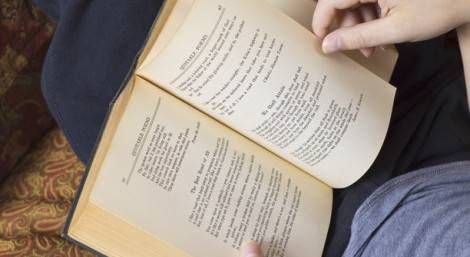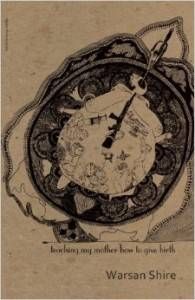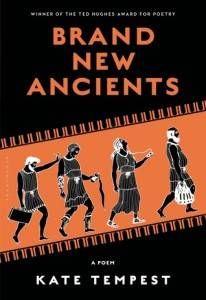
Two Living Poets You Should Read
Poetry is dead. It’s old, boring and no longer relevant. I often hear these types of complaints, which is confusing because there is so much exciting work being produced.
For me, poetry is the art of reducing to the essential. Conveying a particular impression, a precise thought, a vivid image using the perfect phrase, even word. Many poets today are creating beautiful pieces that do just that. They tailor and shape language to convey the political and personal. At their most powerful they can influence how we think about the world; at their most intimate they reflect and inform how we understand ourselves.
You might have been taught Byron and Wordsworth, maybe the war poetry of Wilfred Owen and Siegfried Sassoon. However, living poets often seem to be forgotten. Below are two of my favorite living poets. They are well respected and gaining wider recognition, but will be enjoyed by anyone who loves words and language. Read these poets. Spread the word. Remind people that poetry is alive. Let them know what they are missing out on.
teaching my mother how to give birth
Warsan Shire

teaching my mother how to give birth by Warsan Shire
Warsan Shire is a bit of a superstar as far as poets go. She provided inspiration and lyrics for Beyoncé’s video album Lemonade. I’d urge everyone to go out and pick up Shire’s pamphlet teaching my mother how to give birth. I stumbled across this slim collection of poems in Foyles, London, and was blown away by the visceral power of her poetry. A Kenyan-born, London-based, Somalian Poet, Shire navigates the bodily and psychological experience of being a black woman and part of the African diaspora. teaching my mother how to give birth pushes the reader intellectually and emotionally. There is a physicality to Shire’s imagery, often appealing to our senses of touch and taste. I found her lines sticking with me – ‘the mouth bloody with grapes’, the ‘girl the height of a small wail’ – long after I had finished reading.
Personal pick: Grandfather’s Hands
One of Shire’s simpler poems and yet so effective. It is a description of grandparents who,
often found themselves
in dark rooms, mapping out
each other’s bodies,
claiming whole countries
with their mouths.
Shire manages to convey a lifetime of intimacy in just 23 lines, beautifully depicting a relationship while playing with the idea of the body politic.
Kate Tempest

Brand New Ancients by Kate Tempest
Kate Tempest straddles the categories of poet, spoken word artist and rapper – and you can add novelist and playwright to describe this amazingly talented writer and performer. Brand New Ancients, a one-person play/extended poem, won the Ted Hughes Award in 2012. It was considered by some to be an unorthodox winner as it started life as a performance piece, but the quality of the writing shines through.
The poem revolves around two London families, with Tempest drawing on classical myths and characters to explore modern problems. In doing so, the mundane is electrified. She creates a world – a reflection of our world – in which
the gods are in the betting shops,
the gods are in the caff
…
they are trying to tell the truth
but the truth is hard to say
the gods are born, they live a while
and then they pass away.
Tempest’s poetry can be challenging as it asks us to confront and reconfigure our social narratives. However, the strength of her writing is that she is able to imbue her subjects with such humanity, allowing us to empathise with their problems and understand their flaws. All while dazzling us with her linguistic dexterity on the stage and page.
Personal pick: Icarus
This retelling of the Icarus myth becomes a cautionary tale for our times – ‘If he’d listened to his father, well then he never would have drowned, but the happiness he felt is one he never would have found’. In a poem full of arresting lines and clever word play, it is the pathos of Icarus’ ‘feathers scattered on the waves’ which just ‘rolled on unconcerned’ that hits me hardest. I’d really recommend seeking out the version by Tempest and her band, The Sound of Rum. The meandering guitar lines of the verse and choppy rhythms of the chorus lend the performance a propulsion that suits Icarus’ flight and fall.
Once you’ve read/listened to these two amazing artists, why not find a local poetry night and support living, breathing performers.














